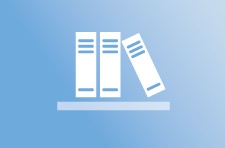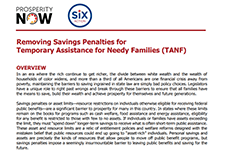Many public benefit programs – such as cash welfare and Medicaid – limit eligibility to those with few or no assets. If individuals or families have assets exceeding the state’s limit, they must “spend down” longer-term savings in order to receive what is often short-term public assistance. These asset limits, which were originally created to ensure that public resources did not go to “asset-rich” individuals, are a relic of entitlement policies that in some cases no longer exist. Cash welfare programs, for example, now focus on quickly moving individuals and families to self sufficiency, rather than allowing them to receive benefits indefinitely. Personal savings and assets are precisely the kinds of resources that allow people to move off public benefit programs. Yet, asset limits can discourage anyone considering or receiving public benefits from saving for the future.
Encouraging Savings for Public Benefit Recipients, a Win for Families and States


